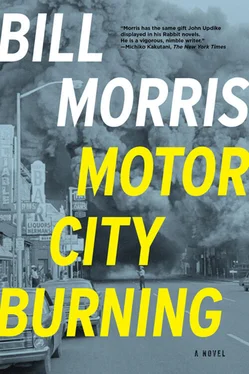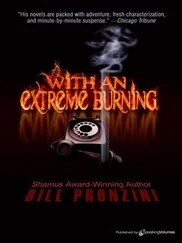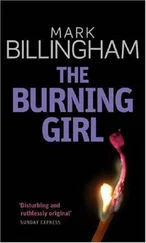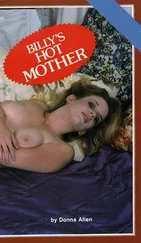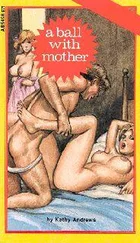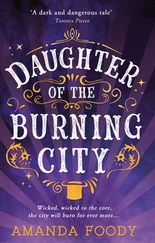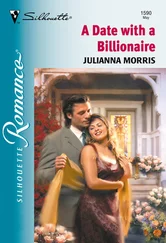“Nosir.”
“You had to be some kind of pissed-off after spending twenty-three hours in that garage.”
“Sure, I was pissed off. But I didn’t fire any gun.”
“Was it just the two of you on the roof?”
“Yessir.”
“A woman in the building told us she heard three men on the roof.”
He shrugged. “Maybe she was hearing things. Was just me and Wes.”
Doyle flipped through the transcript. “When your brother called from Oakland, he wanted to know why you were asking so many questions about the guns. And you said, quote, ‘Want to make sure those guns don’t come back to bite us.’ End quote. What did you mean by that?”
“Meant I didn’t want to get picked up on some bogus weapons charge.”
“Bogus? You didn’t know those guns were illegal?”
“I don’t know legal from illegal. But it’s illegal to fire a gun inside the city limits, right?”
“That’s right.”
“And since I didn’t fire any of the guns — or even touch ’em — I didn’t want to get picked up on some bogus weapons charge on account of my drunk brother.”
It was time for Doyle to play his next chip. “How’d your brother get all those guns from Alabama to Detroit?”
“All what guns?” he said right away, like he’d been expecting the question and had rehearsed the answer.
“Those three guns on the roof of the Larrow Arms, for starters. And the couple dozen guns he sold to black militants all over town before, during and after the riot.”
Again Bledsoe shrugged. “I wouldn’t know a thing about that. Only time I ever seen my brother handle guns was that night on the roof, and that’s God’s honest truth.”
“That’s a goddam lie. Caldwell Petty, the police chief in Tuskegee, told me you and your brother used to blast a shitload of guns in the woods outside of town.”
“A shitload? That cracker’s got an imagination. That was two deer rifles and a snub-nose.38. All registered in my brother’s name. I thought we were talking about guns in Detroit.”
“How’d you and your brother get from Alabama to Detroit?”
“I drove him in my old Buick. The one I traded in at Murphy’s.”
“Your brother ever say anything about smuggling guns back from Vietnam?”
“Only time I heard him mention guns was that phone call from Oakland, when he said he brokered something for the Panthers. Which was probably just more a his bullshit. Man’s all mouth.”
“Well, your brother might be all mouth, but it so happens we’ve got some of his best customers in custody. We’ve also got a lot of the merchandise he moved here in Detroit — including the gun that killed Helen Hull. That name mean anything to you?”
“Nope.”
Doyle could see that gears were turning in his head now. A good sign. Bledsoe was trying to figure just how much the police knew, and if they really had his brother’s customers in custody, and a murder weapon. The door opened on cue and Jimmy walked in and dropped a stack of photographs on the table. He remained standing. Bledsoe sat up straighter, another good sign.
“Got some good news and some bad news, Willie,” Jimmy said. “Which you want first?”
“Your call.”
“Okay, here’s the good news. We just this morning lifted some razor-sharp prints off the gun that killed Helen Hull—”
“Who’s this Helen Hull I’m hearing so much about?”
“Lady got killed by a sniper in a hallway at the Harlan House Motel, just across the Lodge from the Larrow Arms,” Jimmy said. “Happened early in the morning on July 26th, that was a Wednesday during the riot, a few hours after Thomas Henderson bailed you and your buddy Walter Mitchell out of jail. Here’s what she looked like.”
Jimmy slid the crime-scene photograph across the table toward Bledsoe — Helen Hull lying on the hallway floor, eyes open, hands raised, a bullet hole in her chest. Doyle was studying Bledsoe’s face, but it was hard to read the expression. Horror, definitely. Guilt, too?
“And,” Jimmy went on, “we matched the prints from the gun to the prints on a sixteen oh-zee can a Schlitz malt liquor we found on the roof of the Larrow Arms. That’s the building where your brother use to stay.”
“I know where my brother use to stay.”
“You ready for the bad news?”
“Sure.” He actually seemed calm. Doyle was beginning to like him.
“Your fingerprints are a perfect match.”
That was supposed to be a kidney punch. That was the moment when most suspects started to blubber and grovel. But Bledsoe’s face showed nothing this time, and Doyle felt his first twinge of panic.
“Where’d you get my fingerprints for comparison?” Bledsoe said, cool as could be.
“From the night you and Walter got picked up and booked during the riot.”
“Ah.”
Jimmy pressed on. “There’s more. Lady who lives in the building saw your old Buick — the one you unloaded at Murphy’s after you painted it black — she saw it pull up to the building way after curfew, early that Wednesday morning. Saw two men get out and carry a duffel bag into the building. One was big and fat, had a limp, like your brother — the other was tall and thin, like you.”
“This lady see the men’s faces?”
Jimmy ignored the question. “Few minutes later the woman heard three voices on the roof. Then she heard nine gunshots.”
Bledsoe’s face still showed nothing. He said to Jimmy, “That’s interesting what you say about my fingerprints on the beer can.”
“Why’s that interesting?” Jimmy was smirking. Doyle was not.
“Cause I don’t drink Schlitz malt liquor.”
“Never?” Jimmy said, still smirking.
“Nope.”
“Not even a sip?”
“Naw, not since college.”
“What you got against the Bull?”
“Nothing personal. Too sweet for me’s all. Plus the hangover.”
“Don’t make no difference.” Jimmy was admiring the stack of photographs on the table. “All that matters is we got your fingerprints on the murder weapon. That’s all the jury gonna hear when we go to trial. I should say if you stupid enough to let this thing go to trial.”
Bledsoe still showed no emotion. A sick feeling was taking hold in Doyle’s stomach.
“Mind if I have a look?” Bledsoe said, still cool as could be.
“Be my guest.” Jimmy slid the photographs toward him.
Bledsoe sifted through the stack. “Which one of these you say’s the murder weapon?”
“The one you holding.”
While Bledsoe studied the picture, Doyle could see that he was seeing something he liked, and he liked it a lot. Bledsoe said, “A Winchester Model 70.”
“Right.” Jimmy’s smile was getting brighter.
“That a Starlight infra-red scope on it?”
“Sho nuff is.” Jimmy turned to Doyle. “Man knows his guns.” Jimmy still didn’t see it coming.
“My brother had a Navy book with all these guns in it,” Bledsoe said. “He studied that thing the way some guys study Playboy magazine. Is this Winchester a thirty caliber?”
“Right again.”
Bledsoe flipped the photograph onto the table and let out a sigh. There was no mistaking what was in that gesture. It was relief and triumph and, biggest of all, surprise. Doyle realized then that the picture of the murder weapon had revealed something to Bledsoe that even he hadn’t realized till now. Bledsoe said, “I never touched that gun before in my life.”
Jimmy nearly choked. “Say what?”
“I said I never touched that gun — I never touched any Winchester Model 70—in my life. Never. So it’d have to be some kind of miracle if my fingerprints were on that one.”
Jimmy looked stricken, like a man who’d just patted his pockets and realized his wallet was missing.
Читать дальше
